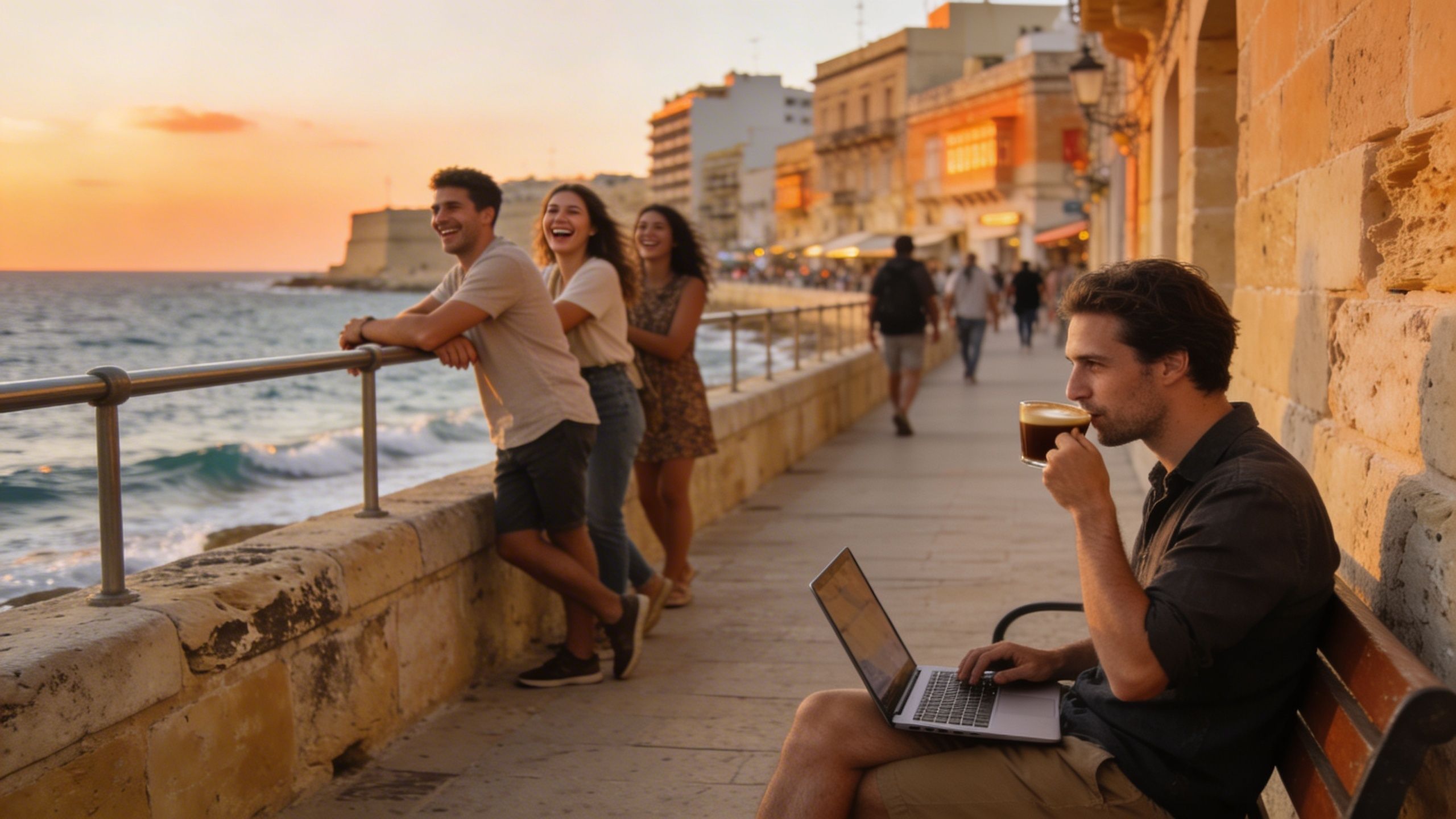France neighbourhoods: lifestyle first, buy smart
Fall for French cafés, canals and coastlines—but pair the romance with data: INSEE shows prices rose in Q1 2025; prioritise internet, coworking and local agency knowledge.
Imagine sipping a café crème on Rue des Rosiers, laptop open, canalside breezes, and the bell of a hidden church marking the hour. That feeling—the slow, local rhythm of French life—is what draws nomads here: brilliant food, weekend markets, and a public-transport system that actually works. But falling in love with France and buying there are two different adventures. This piece pairs the irresistible daily life with the down-to-earth realities you need to buy with confidence.
Living the France lifestyle: city charm and coastal calm

France isn’t a single vibe—it's a dozen. In Paris, Le Marais and Canal Saint‑Martin buzz with cafés, art galleries, and after‑work apéros; Lyon’s Croix‑Rousse hums with artisans and steep, walkable streets; Bordeaux’s Chartrons blends wine bars with riverside promenades; and Nice’s Old Town (Vieux Nice) trades city pace for Mediterranean light and olive-scented evenings. Picture morning markets, boulangeries with warm croissants, bicycles threading narrow lanes, and a neighbourhood barista who already knows your order.
Paris neighbourhood pulse: Le Marais vs Canal Saint‑Martin
Le Marais has narrow medieval streets, boutique shopping, and a dense international community—perfect if you want cafés and culture on your doorstep. Canal Saint‑Martin, slightly edgier, offers relaxed terraces, indie shops, and evening scenes that feel like being part of a creative collective. Both are walkable and great for meetups, but expect smaller apartments and higher per‑m² prices compared with many provincial towns.
Coastal living: Nice, Biarritz and the Riviera tradeoffs
The Côte d’Azur dazzles with sunshine, seaside cafés, and a calendar of festivals—but summer brings crowds and seasonal price spikes. Biarritz and the Basque coast combine surf culture with relaxed towns, while Nice gives you efficient transport and international flights. If beach days and al fresco dinners are central to your vision, budget for peak season premiums and prioritise a property with outdoor space—terrace or balcony will change your day-to-day life.
Making the move: practical considerations that match the lifestyle

Dreams collide with markets—good news: prices began rising again in early 2025 after a cooling period, so timing matters. According to INSEE, second‑hand dwelling prices rebounded in Q1 2025, reflecting renewed activity across regions. For nomads, that means balancing the lifestyle you crave with market momentum: lock in a neighbourhood you love, but work fast on inspections and financing when opportunity knocks.
Property styles: apartments, townhouses and country homes
Apartments in city centres give walkability and café culture but often mean stairs, smaller kitchens, and less outdoor space. Townhouses in Lyon or Bordeaux offer more square metres and family-friendly streets. If you want land—vineyard plots or a rural maison—expect renovation projects, heating upgrades, and a slower pace of life. Choose the property form that supports your daily habits: host friends, cook local produce, or work from a sunlit corner.
How local experts make lifestyle buying possible
1) Find an agent who lives the neighbourhood life: they’ll point to the morning markets, local boulangeries, and the quiet streets that turn into lively squares on weekends. 2) Ask for a walk‑score and commute simulation—agents should map your coworking spot to cafes and international transport. 3) Request verified internet speed tests and nearby fibre availability; for digital work, a flaky connection kills mornings. 4) Insist on local comparables (comps) and recent sales, not just asking prices—this keeps offers realistic in shifting markets.
Insider knowledge: expat truths, seasonal quirks and community cues
Expat life in France is wonderfully social—but it takes work. Coworking exploded in 2024, bringing hubs outside Paris to places like Bordeaux and Lyon, which means better community for remote workers in regional cities. Use local coworking spaces to meet peers, test neighbourhoods for a month, and feel how a place works across seasons. Don’t underestimate summer: cities empty, coasts pack—both have pros and cons for settling in.
Language, social norms, and the art of neighbourliness
A little French goes a long way. Neighbours appreciate greetings and small efforts—say bonjour, shop locally, join the marché on Saturdays. Most nomads quickly find expat meetups in cafés or language exchanges at coworking spots. Remember: French bureaucracy rewards patience and polite persistence, so keep documents organised and expect a few visits to mairie or prefectoral offices.
Practical red flags local buyers watch for
Old heating systems without recent certificates, lack of fibre/broadband in advertised ‘central’ flats, oversized service charges in co‑ops, properties with unresolved copropriété disputes, and overly optimistic rental yield promises from coliving operators.
Coliving can sound perfect—turnkey social living—but it’s a fast‑moving sector with regulatory and community implications. Read contracts closely and ask about long‑term tenant mix to avoid sudden changes that alter neighbourhood character. Local municipalities are increasingly scrutinising densification tactics, so treat coliving offers with extra diligence.
Thinking long term: will the neighbourhood age with you? Look for school options, healthcare access, and weekday traffic patterns, not just weekend charm. A place that’s lively on Saturdays but shuts down midweek may not support remote work rhythms. Aim for a balance: cafés with good wifi, a reliable local grocery, and green space for breaks.
Next steps: pick two neighbourhoods, spend one month there, and work from local cafés and a coworking hub. Compare real sold prices with asking prices using INSEE or local notaire reports, verify fibre and heating, and build relationships with agents who actually live in the areas they represent. MoveSettleGo can connect you to lifestyle‑focused agents who test properties for remote work readiness and neighbourhood fit.
Danish investor and relocation advisor focusing on Portugal and the Algarve; loves coworking culture and expat networks.


